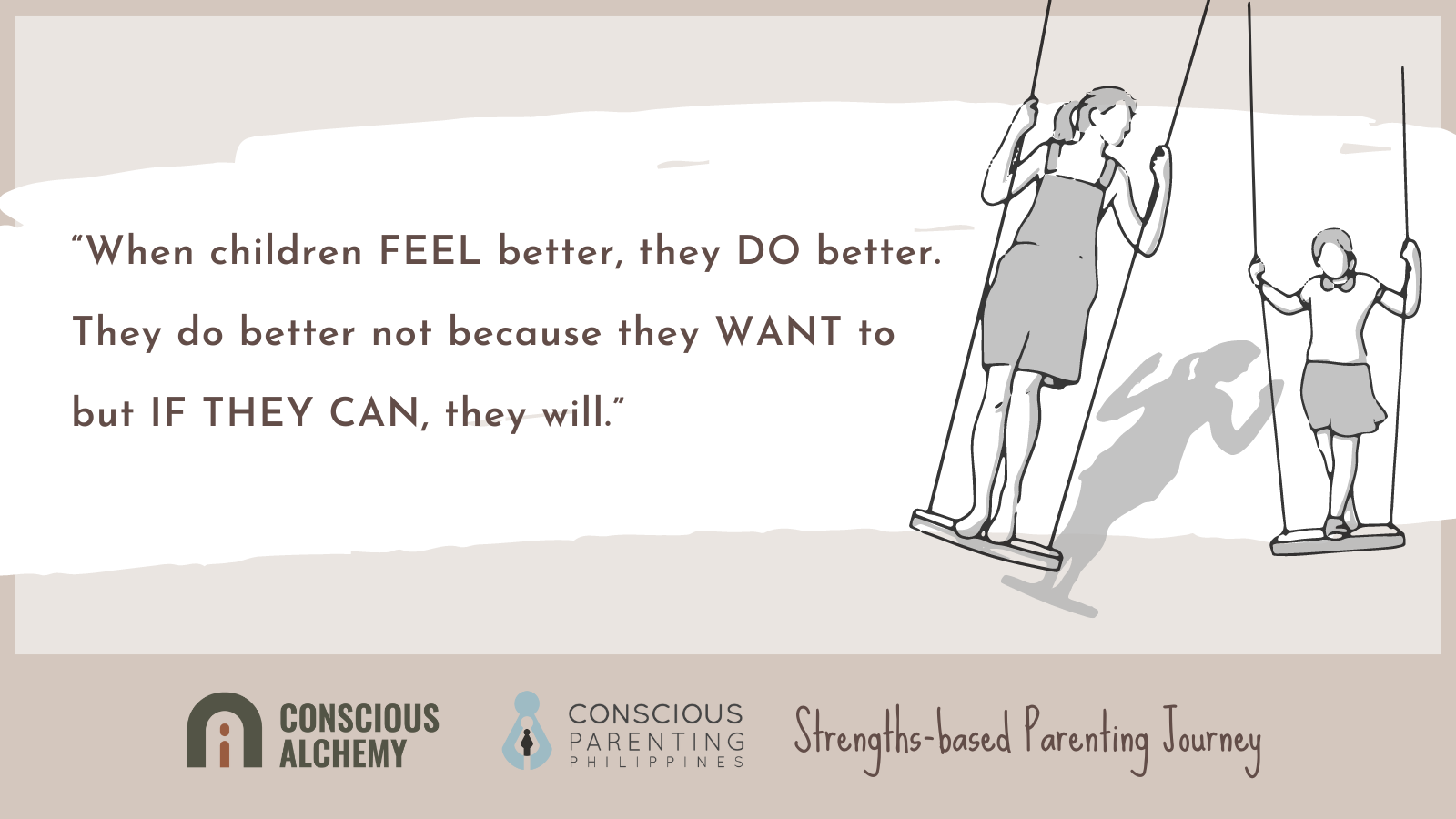
Isn’t it strange that parenting is probably the most important and impactful job we can ever have in this world, regardless of where live, and yet, there is the assumption that we will just “know” it and an expectation that we should be great at it. There is no license to be a parent, but there is a license to drive and to marry, but to be a parent? None.
So, if you’re reading this, congratulations on being curious and open to learning how to be a better parent! The three biggest things that stop people from learning and growing are the belief that “I already know this,” not being able to say “I don’t know,” and not being humble enough to ask for help.
It is interesting that we are not even including ourselves in the equation. When are children are shy, strong-willed, and demotivated, we are quick to point out, “what is wrong with them? How come they can’t be more or less?” It is rare that we ask, “What is it about me that is making me wish for a different outcome? “How does this impact my relationship with my child?”
No, of course not. Exactly like our children!
It’s even worse for our children, especially when they are between 0 and 7 years old.This is the time in our lives when our subconscious beliefs shape how we seethe world, and this is when 90% of our decisions are made. The way we talk as parents becomes the way our kids talk to themselves. The unlived lives of our parents whether it’s their unfulfilled fantasies or their emotional baggage are imprinted in our subconscious.
So, the way we parent, lead, and live our lives is based on patterns we got from our parents and the generations before them. We also unconsciously pass these patterns on to our own children, which affects how we react to them and how we get along with them.
The conventional approach when we want to “fix” our children is to identify (even enumerate) all the things that we want to be corrected. We are focused on the behaviors that we forget the person, our children, behind these behaviors.
In the conscious parenting, Strengths-based approach, we will learn what factors influence our interpretations of situations that trigger a high emotional reaction within us, resulting in power struggles and disconnection with our children. We will learn about the 34 naturally recurring patterns of thoughts, feelings, and behaviors that we have that can be productively applied using Gallup’s CliftonStrengths assessment.
Each of these 34 Talent Themes has distinct contributions, needs, vulnerabilities, triggers, and purpose that, when positively nurtured, can transform the parent-child dynamics into a source of healing, learning, and growth, allowing us to truly enjoy this parenting journey.
When our child acts out and is “too strong-willed,” and when they are distant and different from us, we can mine the gifts and shift the fearful energy to that of curiosity, empathy, and trust. We will also learn our own distinct set of talent themes that may be potential sources of conflict in the relationships, and we will be proactive in nurturing the relationship, providing the energy our children require from us, and teaching them the skills they require to thrive. We will embody and initiate the change that our children need to see.
Through conscious parenting, strengths-based approach, we, as parents, are now more informed and self-compassionate that empowers, which helps us connect with our children’s feelings in a real way. When our children see this, they will feel better, which will make them do better. We have taught them the skills they need to be better, not out of fear or power struggles, but because we have unleashed their authentic goodness and genuine desire and capacity to always be better. We have learned to separate ourselves from them by seeing and accepting our own strengths and weaknesses.We are now able to respect and embrace our children’s unique strengths and weaknesses, without judging them or making them feel bad about themselves, without enmeshment and with unconditional love and acceptance.
“Knowledge of your strengths and Strengths Strategies are key to understanding yourself and your team. The appreciation of your own and others‚ strengths and weaknesses contribute largely to achieving common goals, increasing our productivity, performance and being able to work interdependently” – G. Ortega
“Working with Coach Kit and her team of brilliant coaches has greatly influenced the way I work with others. Before, while I would try my best to get to know my teammates’ strengths, I also motivated them to work on their weaknesses. We’ve always thought that it’s better to be a well-rounded person rather than focus on what makes us a unique individual. Their workshops honed me to look at people through a different lens. I know I became a better leader and teammate because their programs have been an enriching experience. Working with them delights me because I know they can transform different teams and mindsets.” – K. Castillo
“We have new ways of ‘seeing & being’ and applying Strengths Strategies to help resolve conflict in the workplace and at home. The team in Diageo has learned how to use our strengths more purposefully to nurture relationships and develop others by being more aware of our impact.” – Vanee G
Check out our Strengths Based Parenting Program HERE.


